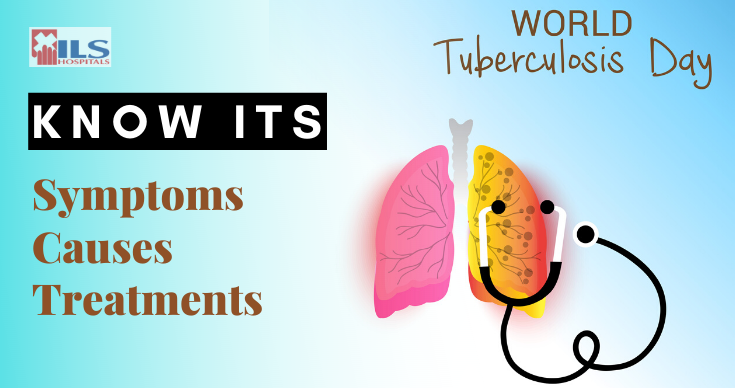How To Boost Your Immunity To Fight Against Virus Or Any Infection
A weak immune system makes us susceptible to seasonal flu or infections. If you become sick throughout the year then it’s an indication that you do not have a good immune system.
Since none of us wants to spend our days staying sick, ILS Hospitals, the multispeciality hospitals in Agartala and Kolkata would like to acquaint you with ways through which you can have a strong immune system.
Let’s look at the ways without any delay.
- Consume immune-boosting foods: Eat plenty of fresh fruits, vegetables, poultry, seafood, nuts, etc for a healthy immune system. Include spices, like ginger, garlic, turmeric, cinnamon, black pepper, cloves in your meals to keep yourself away from flu.
- Drink more water: Water flushes out toxins and impurities from your body so keep drinking water every hour to have a healthy immune system.
- Avoid certain food and drinks: Try to avoid the consumption of processed and canned foods, junk foods, sugary foods, caffeinated and alcoholic beverages as all of them harm the immune system.
- Get sufficient sleep: Not getting enough sleep will make you more vulnerable to seasonal colds and infections. Therefore, get enough sleep every night without fail.
- Exercise regularly: Doing moderate exercises regularly prepares your body to actively fight against infections. Reserve 20-30 minutes of the day for your exercise regime to have an excellent immune system.
- Get enough sunlight: Sunlight is an extraordinary source of vitamin D. Studies suggest that people who spent enough time in the sun fell less sick than the ones who never received enough sunglight. Even soaking for 5 to 10 minutes in the sun daily during the summer season is more than enough for your immune system.
- Avoid stress: Stress hampers both our mental and physical health. Chronic stress has a huge impact on your body’s immunity so avoid living in a stressful environment.
- Stop smoking: Smoking affects the body’s ability to fight with diseases and infections by killing healthy cells of the body. Hence, quit smoking, right now.
- Take multi-vitamin supplements if needed: If your regular diet lacks essential vitamins then consider taking multi-vitamins to keep up with the body’s vitamin requirements.
Visit a medical professional and ask him or her for prescriptive multi-vitamin supplements as per your body’s daily needs.
You can visit ILS Hospitals, one of the best hospitals in Kolkata and Agartala to get medical advice.
Tuberculosis: Types, Symptoms, Causes, Diagnosis And Treatment
Tuberculosis is a communicable disease caused by the bacteria, Mycobacterium tuberculosis. The bacteria mostly affect the lungs (Pulmonary Tuberculosis) but can spread to other parts of the body, kidney, spine, brain, liver and so on.
Today, ILS Hospitals one of the best hospital in Kolkata and Agartala will give you detailed information regarding Tuberculosis.
Types
The two main types of Tuberculosis are as follows:
1. Latent Tuberculosis:
It is a non-infectious, symptomless TB infection that can later progress into active TB. If you have latent TB you will require treatment to prevent it from becoming an active one.
2. Active Tuberculosis:
As the name suggests, it is an active and contagious TB infection that causes various symptoms in the patient.
Signs & Symptoms
The signs and symptoms of active TB infection are as follows:
-
Chest pain
-
Shortness of breath
-
Cough that lasts for more than 2 weeks
-
Weakness or Tiredness
-
Loss of appetite or Decreased appetite
-
Fever and Chills
-
Night sweats
-
Rapid weight loss
-
Lymph nodes or Swollen glands (mostly at the sides and base of the neck)
-
Haemoptysis or Coughing up blood.
Causes
Young children and people with weak immune system are at a higher risk of getting infected by Mycobacterium tuberculosis. The causes of Tuberculosis are as follows:
-
Weak immune system
-
Breathing in the air infected by the person with TB infection
-
Chronic diseases, like diabetes and kidney diseases
-
HIV
-
Malnutrition
-
Smoking
Diagnosis
The diagnostic tests involved with Tuberculosis are as mentioned below:
-
TB Blood test
-
TB Skin test, in which the laboratory technician injects a small amount of PPD tuberculin into the lower arm to check for swelling after two to three days
-
Sputum test
-
Chest X-ray, the most reliable diagnostic method
Treatment
The treatment depends on whether you have active or latent TB.
1. Latent TB:
The main goal is to prevent the bacteria from becoming an active one. For that, you’ll be prescribed antibiotics as your TB treatment.
2. Active TB:
Drugs and medications for several months are recommended for treating active TB.
People diagnosed with Tuberculosis should complete their entire medication course to prevent TB bacteria from becoming drug-resistant.
If you are suspecting any of this symptoms, get an accurate diagnosis and complete treatment for Tuberculosis from ILS Hospitals one of the best hospital in Kolkata, Howrah and Agartala.
How To Add Enough Vitamin K In Your Diet
Do you know what Vitamin K is? Like all other vitamins, Vitamin K is another vitamin vital for the human body. So, what makes Vitamin K essential for our bodies?
Vitamin K is responsible for the clotting of blood or coagulation. Coagulation is a vital process that helps prevent excessive bleeding after a cut or injury. The said vitamin also helps in bone metabolism and calcification. Vitamin K deficiency is a serious condition and can lead to many health issues including:
– Decreased bone strength
– Osteoporosis
– Tooth decay
– Coronary Heart Disease
– Certain types of cancer.
Do you know the symptoms of Vitamin K deficiency? They are mentioned as follows:
-
Heavy menstrual bleeding
-
Easy bruising
-
Excessive bleeding during cuts, injuries, injection or surgical sites
-
Presence of blood in the urine or stools
-
Bleeding in the gastrointestinal (GI) tract.
Today, ILS Hospitals, one of the best hospitals in Kolkata, would like to give you a list of food items that are rich in Vitamin K so that your body never lacks in this essential vitamin. Before we proceed further, let’s make you know that there are mainly two types of vitamin K – K1 and K2. Vitamin K1 is derived from plant sources whereas we acquire vitamin K2 from animal products.
Make these Vitamin K-rich foods a part of your daily diet!
Soybeans
Soybeans, the only plant-based food that contain both vitamin K1 and K2, a relief for vegetarians who cannot get their vitamin K2 supply from meat sources. Apart from the mentioned fact, soybeans and soya chunks are an excellent protein provider for non-meat eaters. You can also consider cooking your meals in soybean oil as the oil contains not only vitamin K but also other pivotal nutrients, like polyunsaturated fatty acids, omega-3 fatty acids etc.
Leafy Greens
Green leafy vegetables are another plant-source for vitamin K. If you want to have sufficient vitamin K in your diet, eat lots of spinach, mustard greens, broccoli, lettuce, cabbage, beet greens and so on.
Eggs
The yolk of an egg has more vitamin K than the white portion. It is always advised to consume eggs for receiving adequate nourishment. You may eat boiled eggs daily for a healthy body.
Pumpkin
Another vegetable that contains vitamin K is pumpkin. One cup of cooked pumpkin has almost 1.96 mcg vitamin K1. So, do include pumpkins in your diet.
Other good sources of vitamin K are chicken, pine nuts, blueberries, dried basil, sage and thyme etc.
To get your customized diet-chart, visit ILS Hospitals in Kolkata and Agartala.
Let’s Know Everything About Computer Vision Syndrome
Everything has pros and cons including our digital world. While the digital world has given us access to vast information and improved our lives, it surely made our eyes pay the price. Constant engagement with digital devices like computers, smartphones, tablets, and television can cause a lot of strain and eye-related problems. This is called Computer Vision Syndrome or Digital Eye Strain.
ILS Hospitals, one of the best hospitals in Kolkata, would like to enlighten everyone on this particular syndrome. Since we know the main culprit behind Computer Vision Syndrome is being engaged for prolonged periods with a computer or other digital devices generally at work , it becomes important to minimize contact or get frequent breaks for protecting the eyes. When we work on a computer, our eyes overwork due to constant focusing and refocusing, also the brightness and glare from the monitor screen affect the eye vision.
Computer Vision Syndrome does not differentiate between a person’s age. It can happen to both children and adults. Here are some more common reasons responsible for digital eye strain.
-
Using computer, smartphones, e-reader etc. in improper lighting
-
Wrong body postures
-
Untreated vision problems
-
Incorrect monitor viewing distance.
Let’s look at the symptoms of Computer Vision Syndrome.
-
Overexerted eyes or eyestrain
-
Vague or blurred vision
-
Dry eyes
-
Pain and discomfort in the eyes
-
Itchy, irritated, and red eyes
-
Headaches
-
Pain in areas like the neck, back, and shoulder.
Computer Vision Syndrome can be easily diagnosed by an ophthalmologist through an inclusive eye examination. So, is there any solution for preventing and treating Computer Vision Syndrome? Certainly yes, just look at the tips below:
1. Maintain proper posture at the workplace:
Almost a majority of people have a job that demands them to work in front of a computer. You cannot avoid the computer but can surely do things like sitting on a proper back-support chair and following minimum monitor viewing distance of 20 inches. Also, keep your back straight and sturdy.
2. Use eye protection software and apps:
Digital devices like computers and smartphones emit blue light that can even damage retinal cells so install a blue eye filter software or app in your office computer and your smartphone. You should customize the display settings of your device as well.
3. Get anti-glare computer glasses:
You should consider anti-glare computer glasses if you spend more than three hours in front of a computer.
You can always consult an eye specialist from ILS hospitals in Kolkata and Agartala to get a proper diagnosis and prescription for computer power glasses.
Make These Health Resolutions For New Year 2020 To Lead A Healthy Life
Finally, it’s New Year 2020. A new year represents new beginnings, new opportunities, and new resolutions. Many people make New Year resolutions every year but find it difficult to implement them. It happens because they are not adamant enough to make their New Year resolutions into a success. But we all want to live a healthy and happy life, isn’t it? In that case, following certain health resolutions is a compulsion.
This New Year 2020, let’s not make an excuse and practice these health resolutions said by ILS Hospitals, to proudly lead a healthy and prosperous life.
1. Eat nothing but healthy:
We all make this promise almost every day to ourselves but cannot keep it when we see our favourite not-so-healthy foods, like french fries, cheeseburger, chicken wings, and many more. It’s time to become resolute and eat nothing but only nutritious meals. Here are ways to execute your healthy diet plan.
-
Less consumption of processed and canned foods
-
No to fatty, oily, deep-fried, and stale foods
-
Eat healthy nuts, fruits, vegetables, leafy greens, legumes, sprouts, millets, etc.
-
Eat fresh, seasonal, and home-cooked meals
-
Less sugar, salt, and refined flour or maida
-
More plant-based diet, less meat consumption
-
Less tea and coffee, more fruit juices, coconut water, vegetable soups, and green tea.
You can also get a customized diet chart made by the best dietitians in our hospitals.
2. Quit unhealthy habits:
The New Year 2020 is the perfect time to get rid of our bad habits, one of which is smoking. Seek therapy for your nicotine addiction without any fail and add a few more years to your life. Other unhealthy habits that ruin our health are excessive alcohol consumption, drinking less water or healthy fluids, being unhygienic, living in uncleaned surroundings, undereating or overeating, living an inactive lifestyle, being constantly stressed and depressed, and getting angry over petty things. It’s time to strike off these unhealthy habits from your life. Change starts with you!
3. Get regular health check-ups:
Regular health check-ups allow the doctors to get an early diagnosis for any potential health condition, thus, ensuring that you live a healthy and disease-free life. You can avail health check-up packages offered by ILS Hospitals in Kolkata and Agartala.
For any health-related solutions, come to ILS Hospitals in Kolkata and Agartala.
Warning Signs Of Chronic Kidney Disease
Our body always gives us early warning signs of any serious medical condition, but a majority of people tend to overlook them which leads to critical harmful consequences.
The kidneys are our body’s filtration system. Our body’s biggest ordeal is to be filled with impurities and toxins, which is a consequence of CKD (Chronic Kidney Disease). The thumb rule is, whenever you notice the signs mentioned in this blog, without any delay of a second, consult a good kidney specialist to get the required treatment on time.
First, we will understand the meaning of chronic kidney or renal disease. It is the gradual loss of kidneys to function properly. Progressively, the kidneys stop functioning that leads to accumulation of waste material and toxins in the body.
Now, let’s look at the warning signs of chronic renal disease:
-
Poor Appetite or Appetite loss: It happens due to the build-up of toxins in the body.
-
Nausea and Vomiting: One of the most obvious signs of the chronic renal condition. If the symptom persists, get yourself examined immediately.
-
Proteinuria: Excessive protein (albumin) in the urine causes your urine to have foams and bubbles. It could be a sure indicator of chronic kidney disease.
-
Hematuria: Presence of blood in the urine is a forewarning of your renal dysfunction.
-
Frequent urination: It’s an obvious sign as your kidney does not work properly the way it should, forcing you to make more rounds to the washroom.
-
Muscle cramps: Due to fluid and electrolyte’s imbalances, you will suffer from severe muscle cramps and weaknesses. You will have bitter leg cramps if you’re developing chronic renal disease.
-
Swollen feet: If your ankles and feet are inflated, then, it might hint at chronic kidney disease.
-
Puffy eyes: The eyes become puffy and you get bags under your eyes due to proteinuria.
-
Dry, smelly and itchy skin: If your kidneys cannot filter blood congruously, the collection of waste material makes your skin to have a fetid smell and lose moisture.
-
Insomnia: A body full of toxins is not an ideal one. It is an understandable fact that it is difficult to sleep and relax with a toxic body.
-
Lack of concentration: Blame your contaminated body (a result of potential chronic kidney disease) for decreased attentiveness at school, college and workplace.
If you notice any of the above-mentioned signs, it’s time for you to have a discussion with a good nephrologist. You can come to ILS Hospitals, as we have expert kidney specialists in our team. Timely treatment is the ultimate way to overcome any disease.







